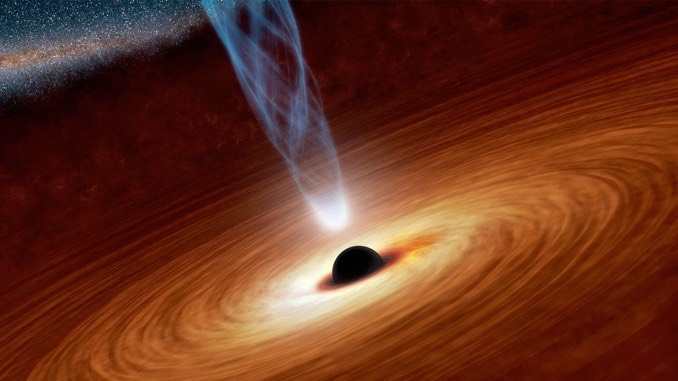Astronomers have found one of the most massive black holes yet discovered, one that is gargantuan by even astronomical standards. Known as J2157, the enormous black hole weighs in at 34 billion times the mass of the Sun and is consuming the mass of a normal star on a daily basis.

“The black hole’s mass is also about 8,000 times bigger than the black hole in the centre of the Milky Way,” said Christopher Onken, a researcher at The Australian National University. “If the Milky Way’s black hole wanted to grow that fat, it would have to swallow two thirds of all the stars in our galaxy.”
The black hole was discovered by Onken and his colleagues in 2018. The observations indicate it dates back to about 1.2 billion years after the Big Bang and is the most massive yet “weighed” from this era of cosmic evolution.
The ANU team and researchers from the University of Arizona used the European Southern Observatory’s Very Large Telescope to measure the black hole’s mass.
“With such an enormous black hole, we’re also excited to see what we can learn about the galaxy in which it’s growing,” Onken said. “Is this galaxy one of the behemoths of the early Universe, or did the black hole just swallow up an extraordinary amount of its surroundings? We’ll have to keep digging to figure that out.”
